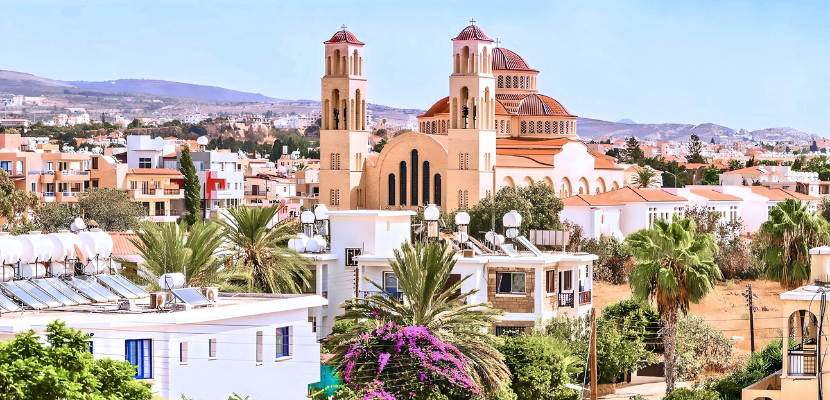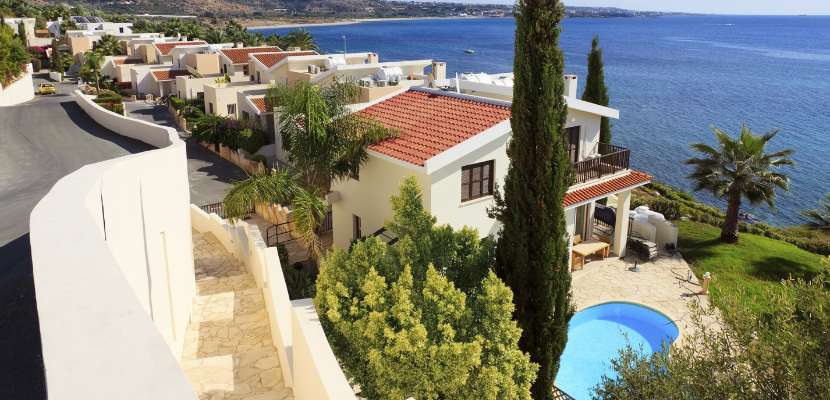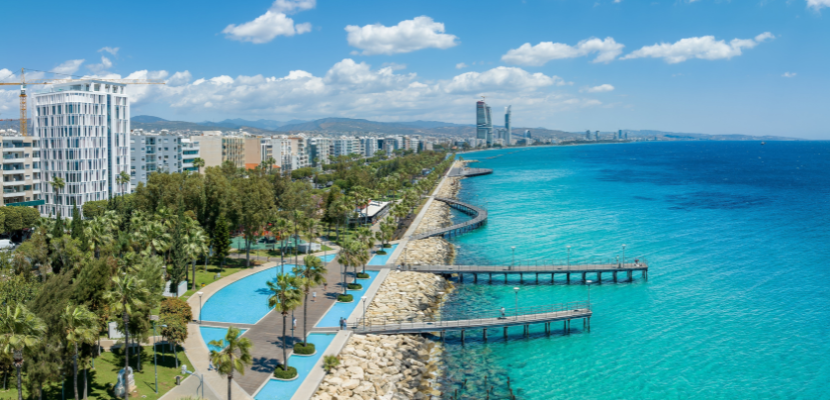
Packed seminars at our latest NEC property exhibition and a rise in property enquiries on aplaceinthesun.com all reflect one thing: Cyprus is more popular than ever with home hunters and those looking to relocate.
Interest in this Anglo-friendly island has been growing steadily since the Covid pandemic, but the momentum has not tailed off – in fact if anything it’s increasing.
Compared to the same period last year, the average property enquiry value has risen by 25.2% to £264,820, while total enquiries are up 13.5%.
Enquiries for apartments have increased by 21.8%, and those for houses (or villas) have jumped by 37.4% — confirming what we’ve been hearing from seminar audiences: people are planning to spend longer on the island. And they’re not alone.
Sales at a 17-year high
Property sales in Cyprus reached a 17-year high in the first seven months of 2025, with over 10,500 transactions, showing strong demand across all districts including Paphos, Famagusta, and Larnaca, according to official data.
International buyer interest has grown by 16% year-on-year, with EU buyers showing particularly strong gains in Nicosia, Limassol, Paphos and Famagusta.
Paphos remains the top location for aplaceinthesun.com users, while Famagusta is up by 29.8% and Larnaca by 16.7%. Island-wide data shows Paphos apartment sales rising by 67.7%, and Larnaca and Famagusta becoming increasingly popular as affordable alternatives to Limassol.

Affordability a big draw
It goes without saying that the climate, relaxed pace of life, great beaches, golf courses and traditional villages are a big part of Cyprus’s appeal. But affordability is a major factor too. Many British retirees spend between €200,000 and €300,000 on a three-bedroom home with a pool.
Around 40,000 Britons live on the former British colony, where the cost of living is 13.6% lower than the UK, according to Numbeo.com.
Retirees can often live comfortably on €1,800 to €2,000 per month, with council tax bills as low as £50 per month for a house.
Those over 65 and residents can apply to join the Cypriot General Health System (Gesy) for free using an S1 Certificate from the NHS in the UK.

Visitor visas explained
British retirees can apply for a visitor visa, which is renewable annually for five years. After this period, you may be able to apply for permanent residency.
You don’t need to buy a property to apply for this visa – although if you do own one, its value may be considered part of your financial resources. You must also provide proof of health insurance unless you have an S1 certificate.
For the first year, you’ll need to show that you have €10,000 in a Cypriot bank account, plus an extra €2,000 for a spouse. In subsequent years, this requirement drops to €6,000, and you'll need to show ‘sufficient and stable’ income derived from outside Cyprus (such as pensions, savings, rental income or dividends).
The minimum income requirement is €2,000 per month (€24,000 annually) for one person, with an additional 20% required for a spouse – that’s €28,800 (£24,352) per year for a couple.
Alternatively, a fast-track visa is available. To qualify, you must purchase a new-build property worth at least €300,000 + VAT, and show income of €50,000 per year for the main applicant, plus €15,000 for a spouse.

Tempting tax benefits
As UK residents await potential tax changes in the Autumn Budget – and face upcoming changes to inheritance tax thresholds in 2027 – it’s no surprise that Cyprus’s tax-friendly environment is turning heads.
Retirees can choose between a flat rate of 5% tax on pension income (above a tax-exempt allowance of €3,420); or you can be taxed at normal tax rates (after €19,500 personal allowance) of 20% up to income of €28,000, then it rises progressively to 35% for income over €60,000.
Cyprus also has a double taxation agreement (DTA) with the UK, so you won’t be taxed twice. There is no inheritance tax in Cyprus – though UK tax obligations may still apply depending on your residency status.

Start your Cyprus property journey
Cyprus combines value for money, a relaxed Mediterranean lifestyle, tax perks and healthcare access – all with no language barrier for English speakers. Whether you’re planning to move soon or just exploring your options, now could be the perfect time to start your property search.